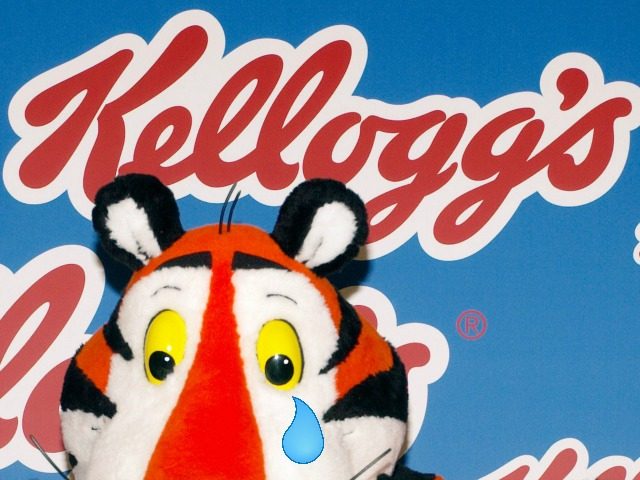Kellogg’s CEO John Bryant has stepped down from his post as sales continue to stagnate for the cereal giant. Kellogg’s has also looked outside the company for a replacement.
Bryant, 51, leaves the top of the company after seven years of falling revenue, a contracting work force, major reorganization, and a shift in customer tastes, the Detroit Free Press reported.
Since January of this year, Kellogg’s launched a campaign dubbed “Special K,” meant to reorganize its distribution system necessitating the elimination of over one thousand jobs across the country. The program also affected the jobs of thousands of contractors.
Along with the company’s headquarters in Battle Creek, Michigan, some of the states hit by the cuts are North Carolina, where almost 500 were fired; nearly 300 were fired in facilities in New York, 219 workers were cut in Minnesota, and 500 were laid off in Pennsylvania.
Despite its near decade of struggling to stay profitable, during most of which Bryant was CEO, the company claimed Bryant resigned for “personal reasons.”
“It has been my pleasure to serve as the CEO of Kellogg Company over the past seven years,” Bryant said in a statement. “I am even more confident in the future of our company today than at any other time in my 20 years with Kellogg.”
Kellogg’s moved quickly to replace Bryant but did so by looking outside the company.
Steven Cahillane, 52, was brought in to lead the breakfast food giant after a three-year stint as CEO of vitamin and nutritional supplement maker Nature’s Bounty.
Once thought to be in the running for the top slot at Coke, Cahillane left the soft drink company after a surprise internal shakeup. He also spent over a decade in the beer industry going from a Chicago craft beer start-up to Coors to beer giant AB InBev, owner of Anheuser-Busch.
The sudden announcement sparked “more questions than answers” on Kellogg’s status, according to Goldman Sachs.
With breakfast foods on the decline, especially the company’s staple cereal products, Kellogg’s has been struggling to keep its profit margin. In 2000 the company’s product line was 70 percent cereal products and only 20 percent snack foods, but due to changing tastes, that now stands at only 40 percent for cereals and over half for snack foods.
Follow Warner Todd Huston on Twitter @warnerthuston.

COMMENTS
Please let us know if you're having issues with commenting.